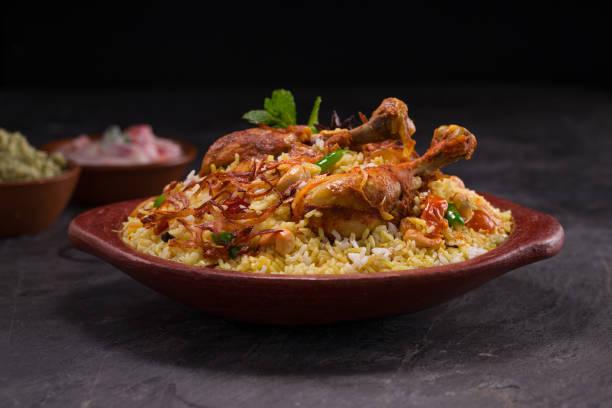Biryani, a fragrant and aromatic dish that originated in the Indian subcontinent, stands as a testament to the rich culinary heritage and diverse flavors of South Asian cuisine. This beloved one-pot meal features a harmonious blend of long-grain basmati rice, tender meats or vegetables, aromatic spices, and fragrant herbs, creating a symphony of flavors and textures that captivates the palate. Beyond its culinary allure, biryani offers a wealth of nutritional benefits derived from its diverse ingredients, making it a wholesome and satisfying meal option that nourishes both body and soul.

One of the key nutritional components of biryani is its balance of carbohydrates, protein, and healthy fats. Biryani typically includes basmati rice as the primary source of carbohydrates, providing energy to fuel daily activities and support physical endurance. Additionally, biryani contains protein from ingredients such as chicken, lamb, beef, fish, shrimp, or paneer (Indian cottage cheese), which are essential for muscle repair and growth, immune function, and hormone production. Including protein-rich foods like these in one’s diet supports satiety, promotes muscle health, and aids in weight management. Healthy fats from sources such as ghee (clarified butter), nuts, or coconut milk add richness and flavor to biryani while providing essential fatty acids that support heart health and brain function.

Moreover, biryani is often cooked with a variety of vegetables, such as onions, tomatoes, bell peppers, carrots, peas, and potatoes, which add essential vitamins, minerals, and dietary fiber to the dish. Vegetables provide vitamins such as vitamin C, vitamin A, and vitamin K, as well as minerals like potassium and magnesium. These nutrients support overall health and well-being, contributing to immune function, bone health, and metabolism. Dietary fiber aids in digestion, promotes regular bowel movements, and helps regulate blood sugar levels. Including fiber-rich vegetables in biryani supports gut health and may reduce the risk of digestive disorders such as constipation and diverticulitis.

Additionally, biryani is flavored with a variety of herbs, spices, and seasonings, such as ginger, garlic, cinnamon, cardamom, cloves, and saffron, which not only enhance the flavor profile but also offer potential health benefits. Ingredients like ginger and garlic contain bioactive compounds with antioxidant, anti-inflammatory, and antimicrobial properties. These compounds help reduce oxidative stress in the body, combat inflammation, and may lower the risk of chronic diseases such as heart disease, cancer, and diabetes. Herbs and spices also add depth of flavor to biryani, making it a delicious and satisfying meal option.

Furthermore, biryani can be customized to suit individual tastes and dietary preferences, making it suitable for a wide range of individuals, including vegetarians, vegans, and those with gluten intolerance or food allergies. Options such as vegetable biryani or paneer biryani provide protein for plant-based diets, while using gluten-free ingredients like basmati rice ensures compatibility with gluten-free diets. Choosing high-quality ingredients and minimizing added sugars and sodium further enhances the nutritional value of biryani.

In conclusion, biryani offers a flavorful and nutritious dish that reflects the culinary diversity of South Asian cuisine. With its combination of carbohydrates, protein, vegetables, and healthy fats, biryani provides essential nutrients that support overall health and well-being. By including a variety of ingredients, choosing wholesome options, and minimizing added sugars and sodium, biryani can be enjoyed as part of a balanced diet, providing both flavor and nutrition to meals.





Great breakdown! It’s clear how AI is reshaping productivity, and platforms like AI Repurpose Assistant are making it easier to find the right tools for specific workflows.